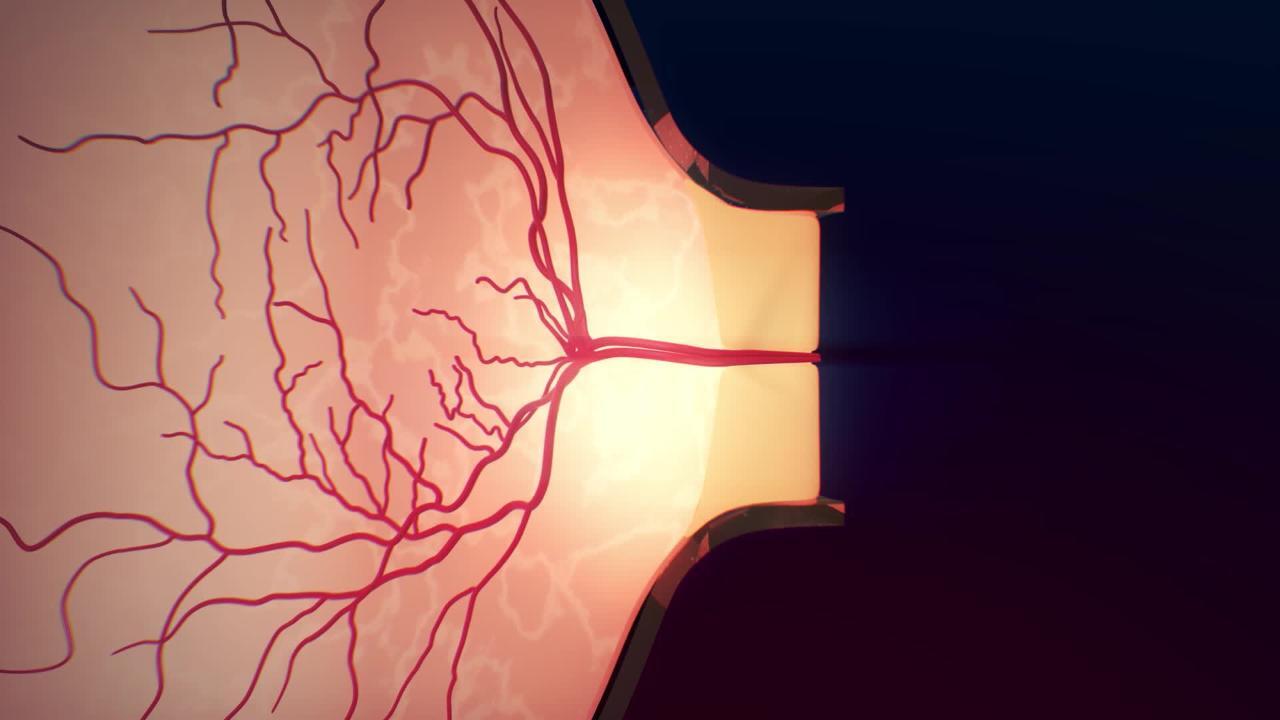- Overview of Retinal Disorders
- Age-Related Macular Degeneration (AMD or ARMD)
- Blockage of Central Retinal Arteries and Branch Retinal Arteries
- Blockage of Central Retinal Veins and Branch Retinal Veins
- Cancers Affecting the Retina
- Detachment of the Retina
- Diabetic Retinopathy
- Epiretinal Membrane
- Hypertensive Retinopathy
- Retinitis Pigmentosa
Retinitis pigmentosa is a rare, progressive degeneration of the retina (the transparent, light-sensitive structure at the back of the eye) that eventually causes moderate to severe vision loss.
Topic Resources
Retinitis pigmentosa is often inherited. One form has a dominant pattern of inheritance, requiring only one abnormal gene from either parent. Other forms are recessive and require an abnormal gene from both parents. An X-linked recessive form occurs mainly in males who inherit one abnormal gene from their mother. In some people, mostly males, hearing loss may also be inherited (a disorder called Usher syndrome).
(See also Overview of Retinal Disorders.)
Symptoms of Retinitis Pigmentosa
The photoreceptor (light-sensing) cells of the retina that enable people to see at night or in the dark or dim light (called rods) gradually degenerate. As a result, seeing at night or in the dark or dim light becomes difficult.
Symptoms of retinitis pigmentosa begin at various ages, often in childhood. Over time, peripheral vision progressively deteriorates and can evolve into legal blindness. People may eventually lose the ability to see at night or in dim light. In the late stages of the disease, the person typically has only a small area of central vision and possibly no peripheral vision remaining (tunnel vision). Sometimes in late stages the macula, the area of the retina responsible for central vision, swells. This swelling is called macular edema and affects central vision.
Diagnosis of Retinitis Pigmentosa
A doctor's examination of the eye
Possibly electroretinography
Examination of family members
Doctors suspect the diagnosis of retinitis pigmentosa in people who have poor night vision or a family history of the disorder. When examining the retina with an ophthalmoscope, doctors see specific changes that suggest the diagnosis.
Tests such as the electroretinogram, which evaluates the electrical response of the retina to light, may help confirm the diagnosis and determine how the severity of the disorder has changed over time.
Family members should be examined so that the inheritance pattern can be determined if possible. If the disorder is present in other family members, genetic counseling should be considered before having children.
Treatment of Retinitis Pigmentosa
Vitamin A palmitateVitamin A palmitate
Lutein plus zeaxanthin supplements
Sometimes, medications called carbonic anhydrase inhibitors
Sometimes, surgically implanted computer chips
No treatment can reverse the damage caused by retinitis pigmentosa. Vitamin A palmitate may help slow the progression of the disorder in some people. Supplements with lutein plus zeaxanthin may also slow the rate of vision loss. People who have swelling of the retina (macular edema) are given medications called carbonic anhydrase inhibitors (usually acetazolamide or dorzolamide) by mouth or as eye drops.No treatment can reverse the damage caused by retinitis pigmentosa. Vitamin A palmitate may help slow the progression of the disorder in some people. Supplements with lutein plus zeaxanthin may also slow the rate of vision loss. People who have swelling of the retina (macular edema) are given medications called carbonic anhydrase inhibitors (usually acetazolamide or dorzolamide) by mouth or as eye drops.
A gene-therapy agent called voretigene neparovovec-ryzl may restore some vision to people with a particular mutation, provided they still have some retinal cells capable of surviving and reproducing.
People who have lost all vision or almost all vision can be given a surgically implanted computer chip in the eye, which can restore some perception of light and shapes.
More Information
The following English-language resource may be useful. Please note that THE MANUAL is not responsible for the content of this resource.
National Eye Institute: A resource for learning about eye health (in English and Spanish) for adults and children, as well as for providing access to outreach campaigns. Simply type in the appropriate search term.


